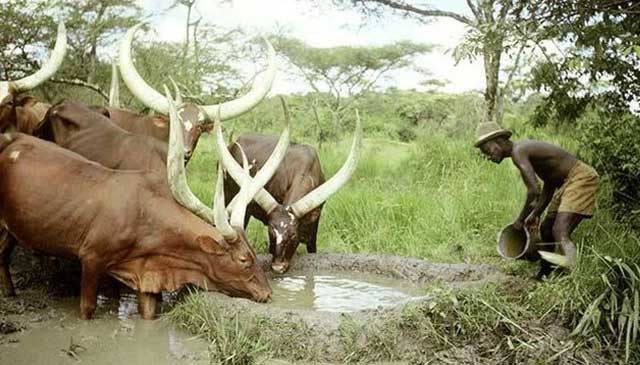
Lyantonde, Uganda | THE INDEPENDENT | Livestock farmers in Lyantonde are battling a rare strain of bacterial infections affecting animals in the area.
The strain has been identified to be Black Quarter, an infection which stacks the animal’s muscles and blocks blood flow in the veins causing its sudden death. Research shows that the infection is mainly caused by contaminated pasture.
Lyantonde District Veterinary Officer Dr Ronald Bemeka explains that the disease also affects the lumen of the affected animals, causing blood-diarrhoea and eventually leading to death. He indicates that the problem was first reported in March and has since led to the death of over 500 head of cattle in the area.
Dr Bameka adds that despite being a rare animal disease, the strain has the capacity of causing massive deaths in livestock and can also spread to human beings if not treated so fast. Research shows that infected animals often die within 24-48 hrs of the appearance of symptoms.
Dr Bameka however indicates that they are now considering mass vaccination against the disease as well as advising the community on proper disposal of carcasses.
Joseph Musasizi, a cattle farmer in Kaliiro sub-county who has so far lost five heads of cattle says they are afraid that the disease may become worse than if no measures are put in place to contain further spread.
“We are just recovering from the quarantine stress that was imposed after the outbreak of the infamous Foot and Mouse Disease-FMD. We can hardly afford to buy the vaccines for this new disease that has been discovered here,” he said.
Musasizi has asked the government through the Ministry of Agriculture, Animal Industry and Fisheries to freely give the vaccines to the affected farmers such that their herds are saved from the deaths.
The disease can be contained by vaccinating all animals aged six months and above annually, burning the upper layer of soil with straw to eliminate spores and sprinkling lime over a carcass at the time of burial.
*****
URN
 The Independent Uganda: You get the Truth we Pay the Price
The Independent Uganda: You get the Truth we Pay the Price



